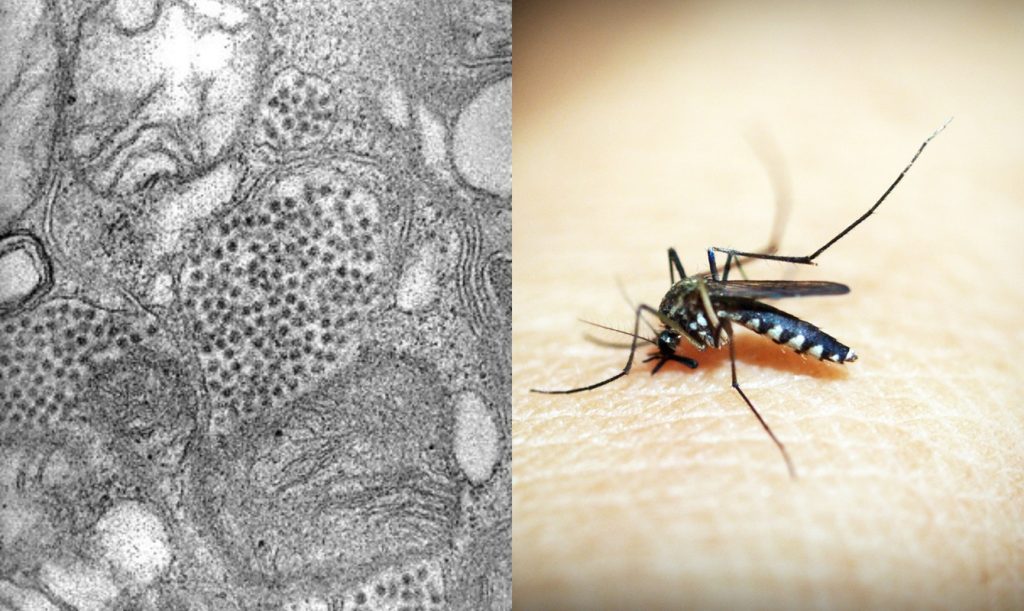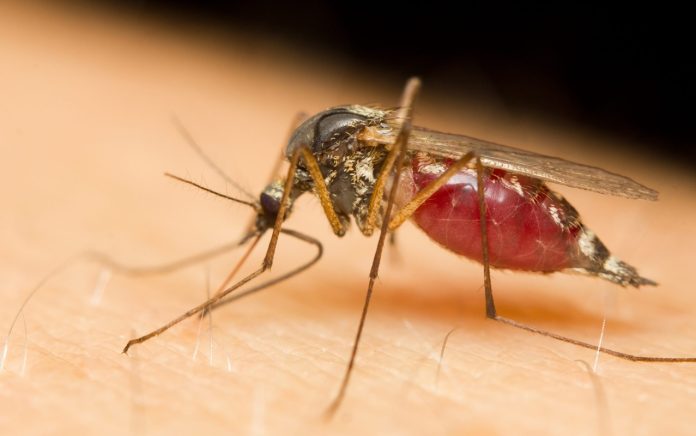Health officials announced Tuesday that a New Hampshire resident has died after contracting a rare mosquito-borne disease.
The individual, an adult from Hempstead near the Massachusetts border, tested positive for Eastern Equine Encephalitis Virus (EEEV). The patient was hospitalized with severe central nervous system complications and later succumbed to the illness, according to an update from the state’s Department of Health & Human Services (DHHS).
This marks the first reported human case of EEEV in New Hampshire in a decade, following three cases in 2014, two of which were fatal, DHHS stated.
Details about when the deceased individual contracted the virus remain unclear, and no additional information, including the person’s name, age, or gender, was provided.
In addition to this case, the virus has been detected in one horse and seven mosquito batches across New Hampshire this summer, the health department reported.
Neighboring states are facing similar concerns. In Massachusetts, 10 communities have been designated as high or critical risk for EEEV, prompting targeted mosquito spraying efforts to protect residents, according to the state’s Department of Public Health.
“In New Hampshire, mosquitoes are known to transmit infections like Eastern Equine Encephalitis Virus, West Nile Virus, and Jamestown Canyon Virus,” stated Dr. Benjamin Chan, New Hampshire’s state epidemiologist.
“We believe there is an increased risk for EEEV infections in New England this year, given the positive mosquito samples identified. This risk will persist into the fall until a hard frost kills the mosquitoes. Everyone should take precautions to avoid mosquito bites when outdoors,” he added.
EEEV is a rare but serious illness transmitted by infected mosquito bites. The virus does not spread through physical contact or respiratory droplets, according to the Centers for Disease Control and Prevention (CDC).
Most people infected with EEEV experience mild or no symptoms. However, severe cases typically start with fever, headache, chills, and vomiting, which can progress to encephalitis (brain swelling) or meningitis (swelling of the membranes around the brain and spinal cord).
Many survivors suffer from long-term neurological issues, including convulsions, paralysis, and intellectual disabilities. Approximately 30% of those who develop encephalitis from EEEV die from the disease.
There are currently no vaccines or specific treatments for EEEV in humans. The CDC recommends rest, fluids, and over-the-counter pain medications to help alleviate symptoms.

As of Tuesday, there have been four additional cases of EEEV reported this year in the U.S., with one case each in Massachusetts, New Jersey, Vermont, and Wisconsin, according to the CDC.
Read More: Former Tennessee Officer Charged in Tyre Nichols’ Death Set to Change Plea
The New Hampshire DHHS advises residents to protect themselves by using effective mosquito repellents, wearing long-sleeved shirts and pants when outdoors, and avoiding outdoor activities during peak mosquito hours, typically early in the morning and evening.
Residents are also encouraged to eliminate standing water around their homes, which can attract mosquitoes, and to ensure that doors and windows have tight-fitting screens.

